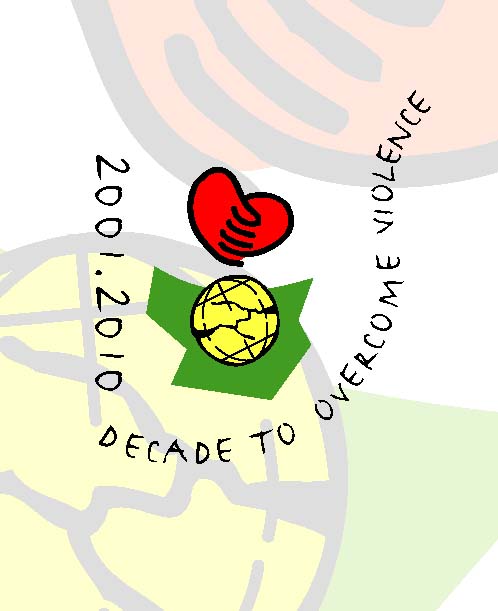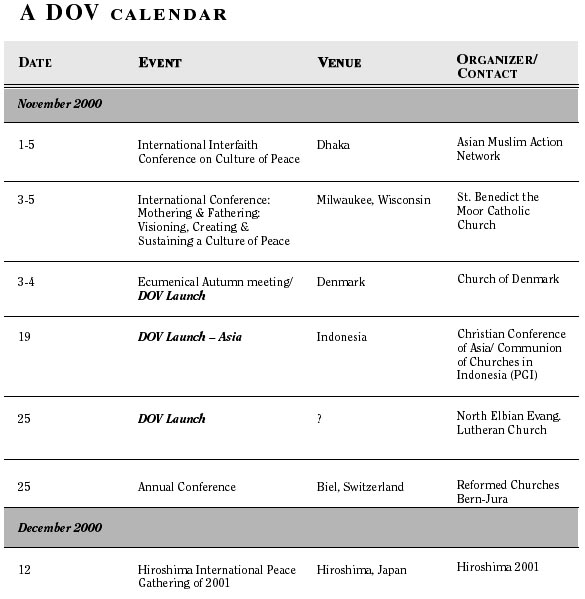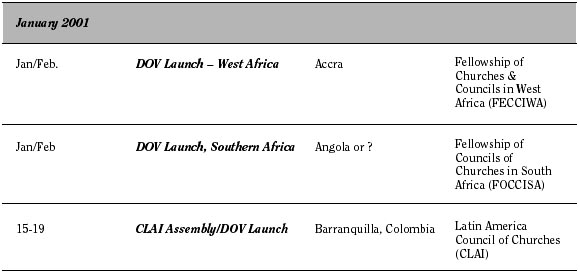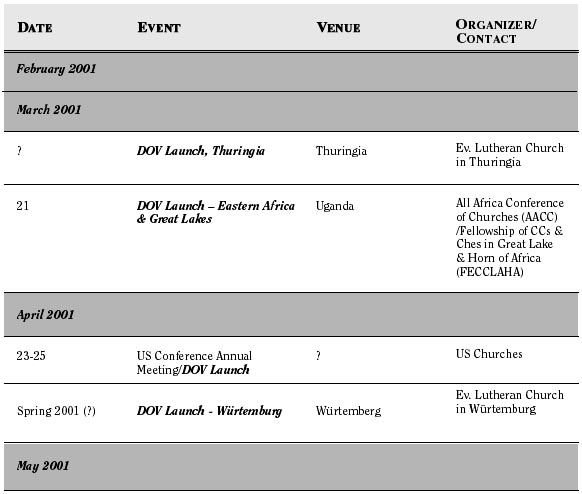
Introducing the Decade to Overcome Violence
By Deenabandhu Manchala

|
Introducing the Decade to Overcome Violence By Deenabandhu Manchala |
 |
Challenged by the phenomenon of increasing violence all over the world, the churches meeting in Harare, Zimbabwe, for the Eighth Assembly of the World Council of Churches, committed themselves to a pilgrimage of peace. The Assembly called the churches, ecumenical organisations and all people of goodwill, to work together to overcome violence through peace and justice. This initiative to seek peace and reconciliation through concerted and coordinated efforts over a period of ten years (2001 - 2010) stems from the World Council of Churches’ passionate engagement with the issues of justice, peace and the integrity of creation, while relentlessly exploring the meaning and purpose of Christian unity in a broken world. The Decade to Overrcome Violence (DOV) is being seen as a new ecumenical rallying point as churches seek unity in partnership with one another and with all, including people of other faiths, in order to make a difference in world pervaded by the culture of violence. The Decade to Overcome Violence will be launched in Berlin on February 4, 2001. The launch includes a worship service at Kaiser Wilhelm Gedächtnis Kirche and a public event at the Berlin House of World Cultures. On the previous day, the members of the WCC Central Committee will deliberate on the DOV process at a special plenary and Padares (workshops). A number of regional and national launches have already begun to take place in several parts of the world. The DOV is not a programme of the WCC, but its call and invitation to work together for peace. It is an expression of the readiness of the churches to work with others to overcome violence and to build a culture of peace. As such, the DOV is expected to grow out of the sensitivity, creativity and commitment of the churches, concerned organisations, and individuals, in different parts of the world. The WCC commits itself to the task of making visible those initiatives of people, movements and churches to overcome violence so that these can inspire others to promote a culture of peace. In promoting the DOV, the WCC emphasises three major elements: 1. Overcoming. DOV is expected to highlight and inspire acts of overcoming violence. 2. Causes of violence. A genuine way to overcome violence is to deal with its causes, which are created and perpetrated by political, economic, cultural and social structures. 3. Churches seeking peace. The DOV testifies to the churches’ resolve to be on a pilgrimage of peace in a broken world. As such, it is also expected to lead the churches through a process of self-discovery. The DOV points towards the challenge of dealing with the spirit, logic and practice of violence in creative ways. |
 |
In accompanying the DOV, the WCC will initiate and encourage: 1. Studies on the structures and cultures of violence in an effort to expose its causes: racism, sexism, xenophobia, casteism, ethnic and linguistic chauvinism, economic and political structures and policies 2. Campaigns and movements working to overcome violence. 3. Production of peace education material in an effort to provide alternative values education in an environment where people are over-exposed to violence and are getting immune to it. 4. Innovative theological and liturgical initiatives to assist the churches to become communities of peace. 5. Sharing stories and experiences of overcoming violence through the web, publications Deenabandhu Manchala, from India, is the WCC Executive officer for the DOV process. |


